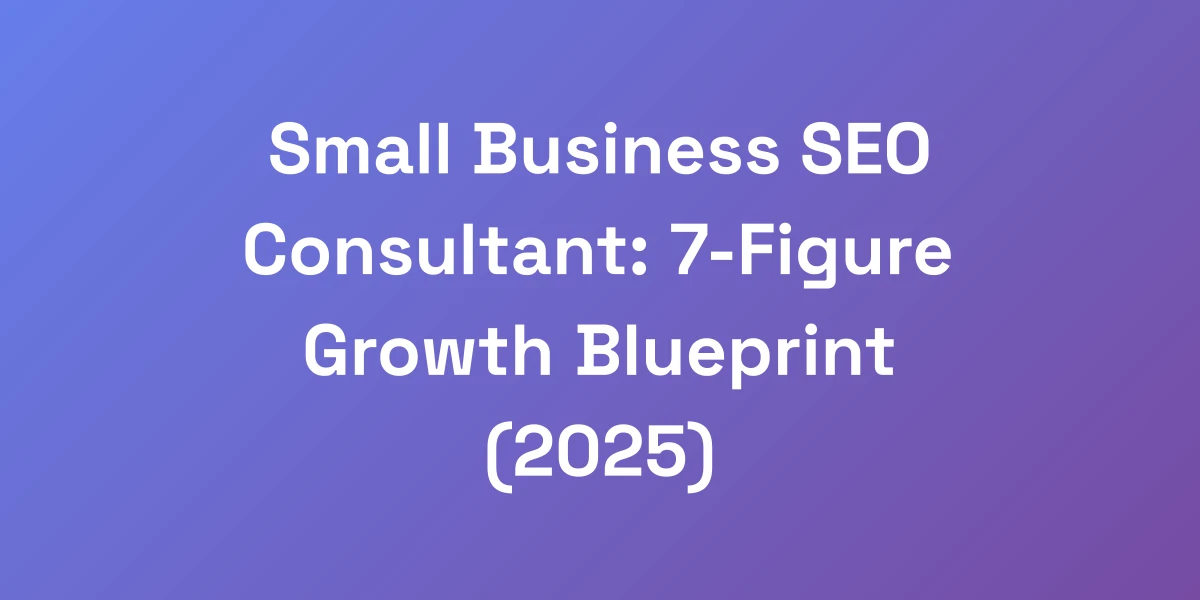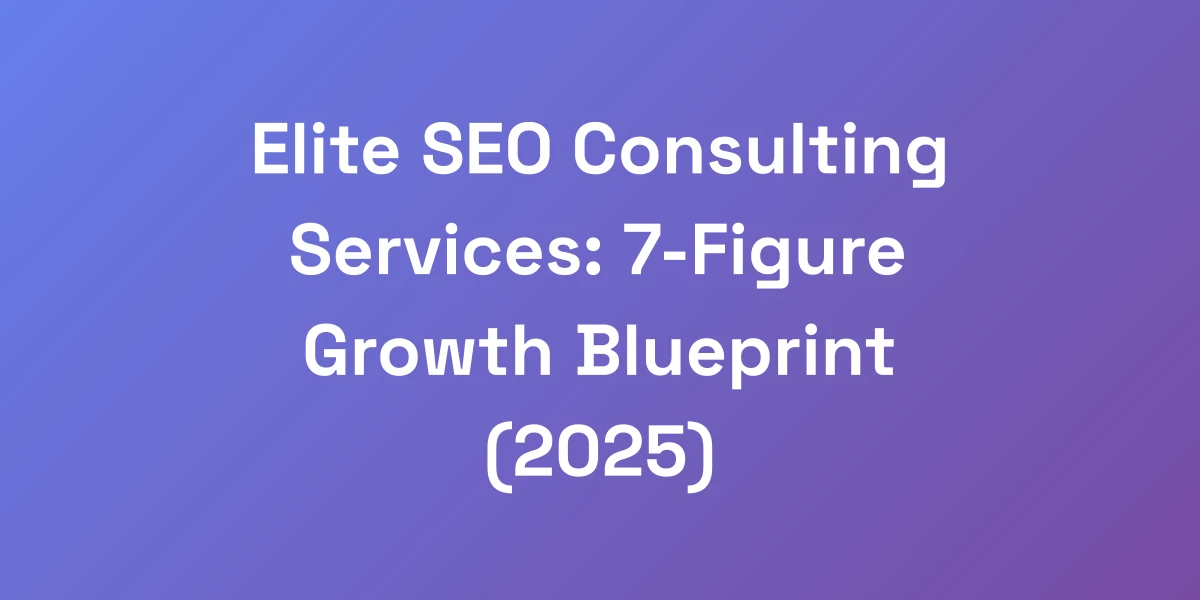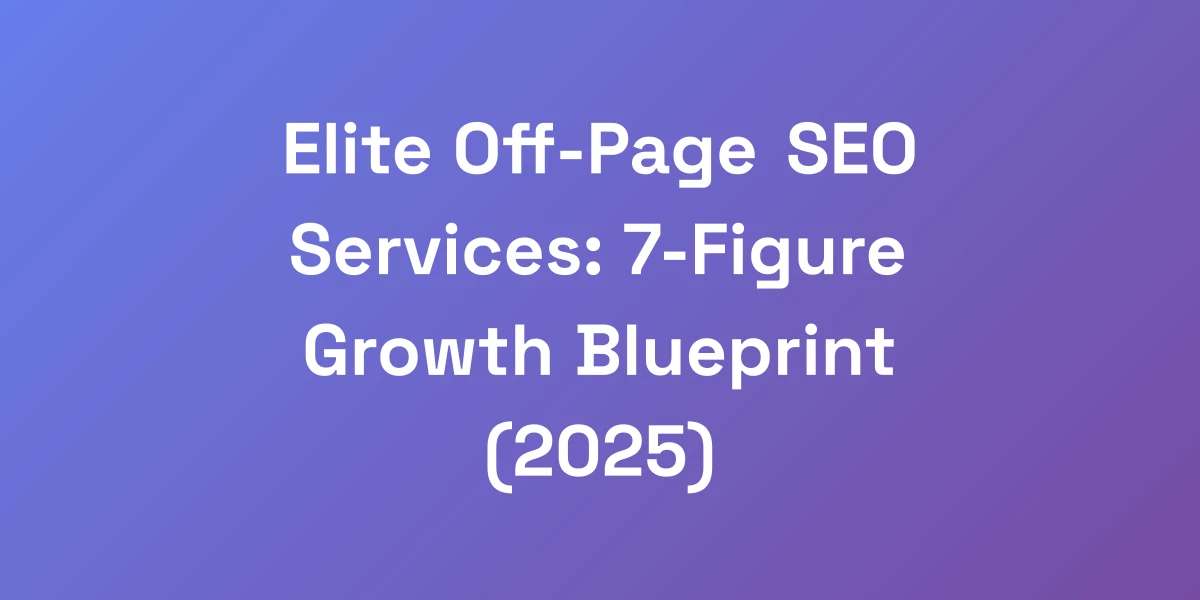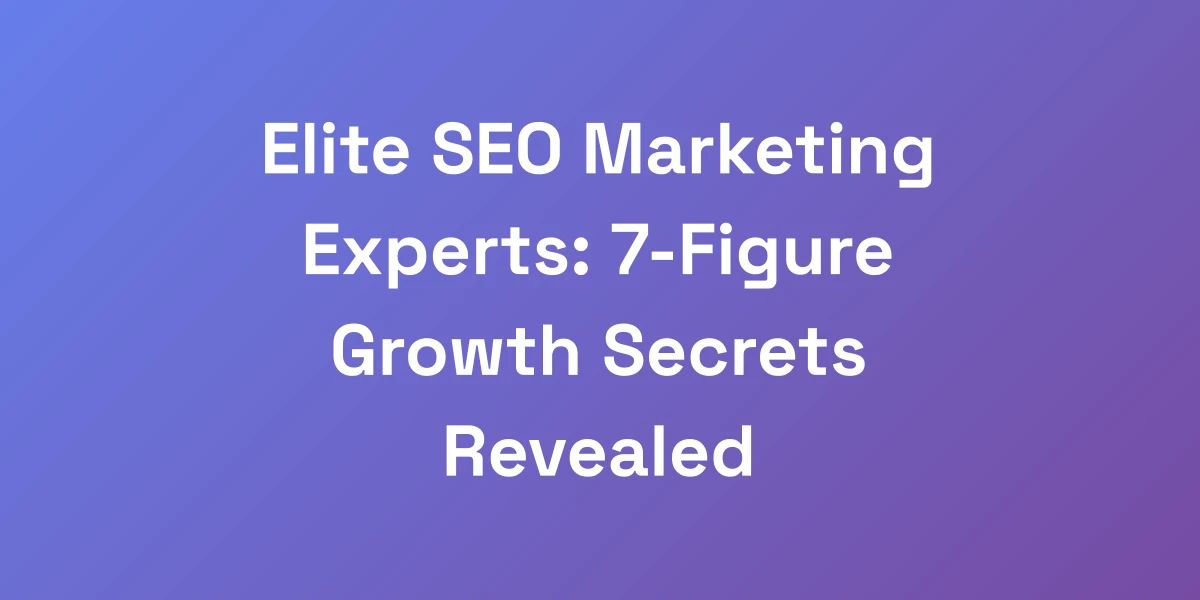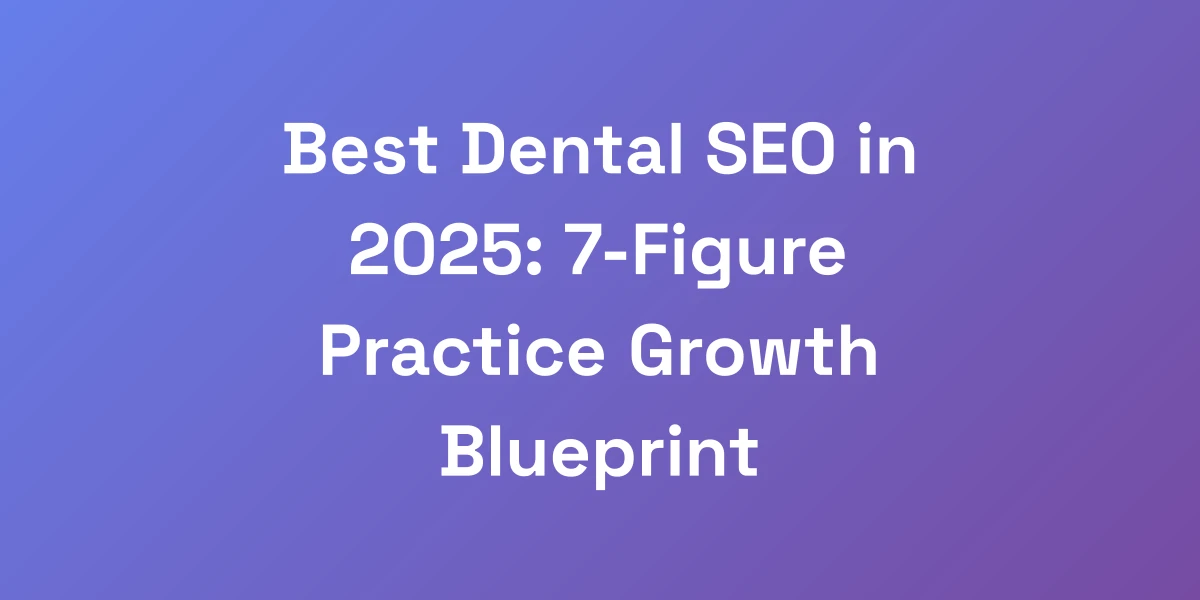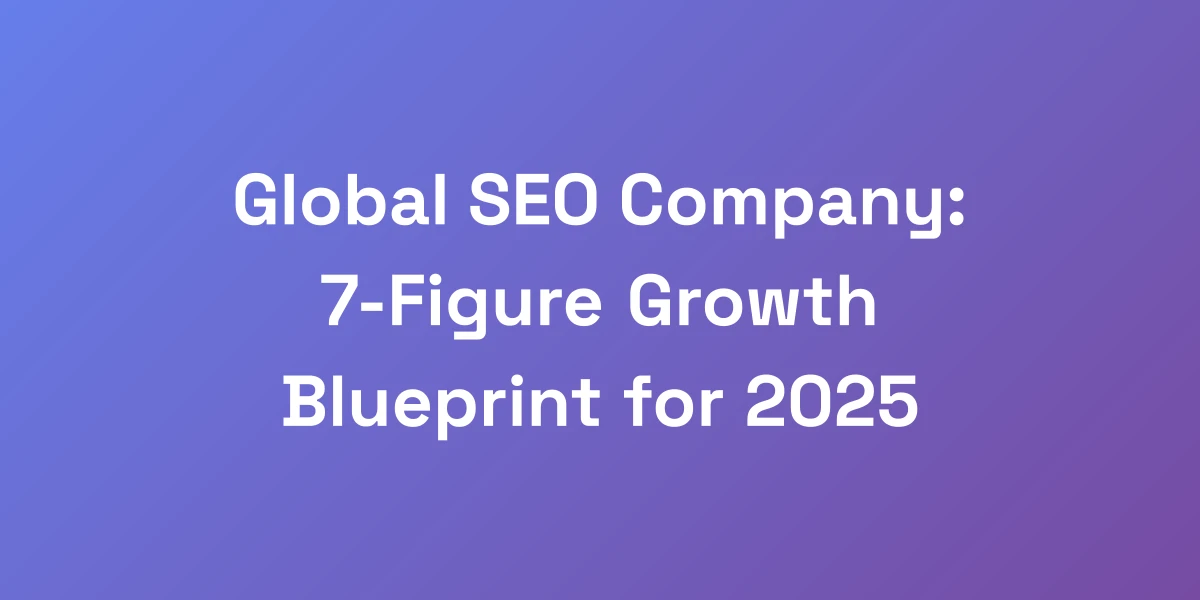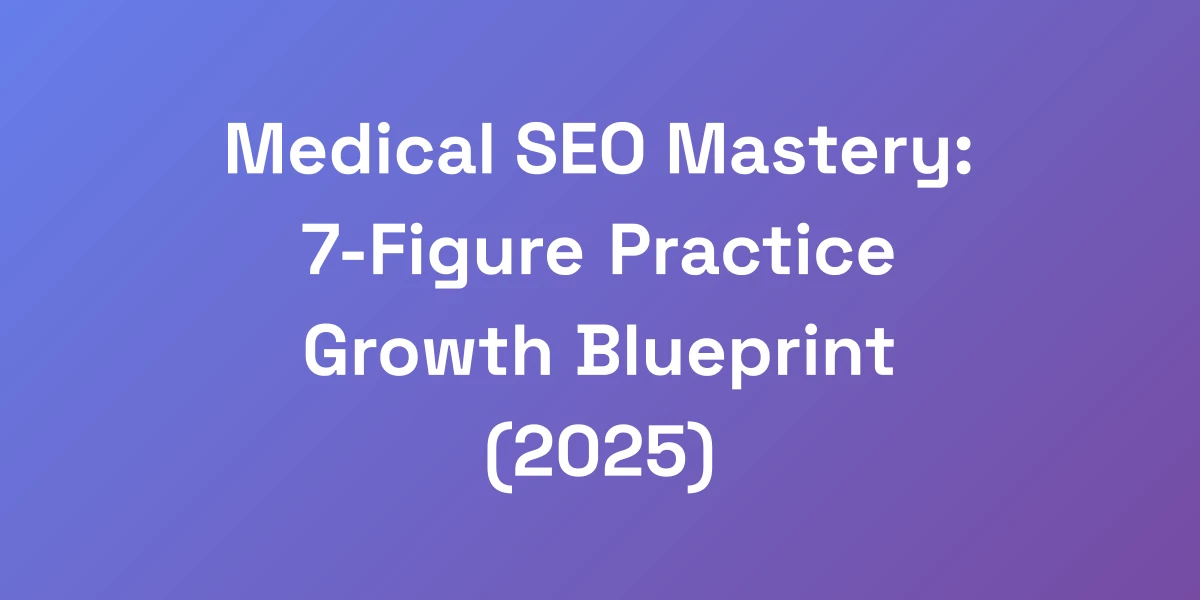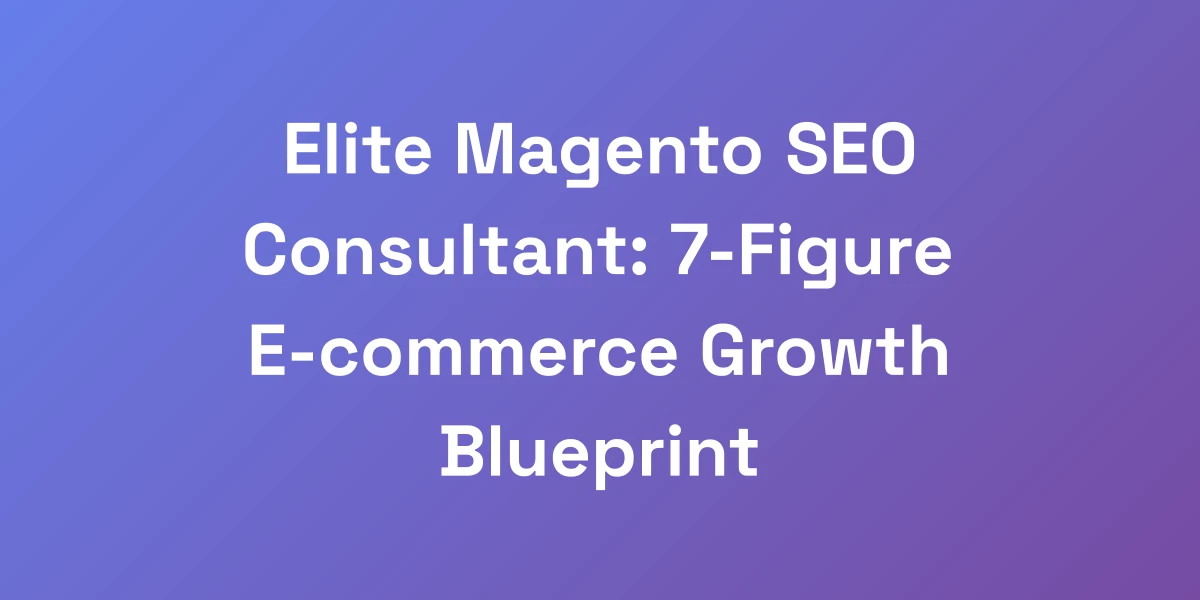
Elite Magento SEO Consultant: 7-Figure E-commerce Growth Blueprint
Mar 18, 2025 | By [email protected]
Why Most Magento Stores Are Leaving Millions on the Table
Let us hit you with some cold hard truth that most agencies won’t tell you: 90% of Magento stores are hemorrhaging money due to poor SEO implementation. We’ve personally audited over 300 Magento sites, and here’s the brutal reality – most “SEO experts” are just scratching the surface.
They’re focused on basic keyword optimization while ignoring the real revenue-driving elements that make Magento stores explode in organic traffic. Your competition’s weakness is your opportunity, and we’re about to show you exactly how to capitalize on it.
The Hidden Cost of Poor Magento SEO Implementation
When Magento stores fail to implement SEO effectively, the costs extend far beyond just lost sales. Think about it: every missed keyword opportunity, every slow-loading page, every poorly structured URL is like leaving a tiny leak in your revenue ship.
For instance, Loake Shoemakers saw a 45% decrease in bounce rate after migrating to Magento 2, thanks to faster load speeds and a more responsive theme. This wasn’t just a better user experience; it directly influenced their SEO and, ultimately, their bottom line.
The hidden costs also include diminished brand authority and lower customer trust. When your site doesn’t load quickly or fails to appear in search results, potential customers might question your reliability and opt for competitors instead.
Common SEO Mistakes Killing Your Magento Store’s Potential
Let’s break down the most common SEO mistakes that are silently killing your Magento store’s potential:
- Neglecting Mobile Optimization: With 46% of Magento store traffic coming from mobile, failing to optimize for mobile can severely impact both user experience and SEO rankings.
- Ignoring Page Speed: A 1-second delay in page load time can result in a 7% reduction in conversions. Magento’s architecture requires specific optimizations to ensure swift loading times.
- Poor URL Structure: SEO-friendly URLs are crucial. Magento often defaults to complex URL structures that hinder search engine crawling and indexing.
- Inadequate Keyword Research: Basic keyword optimization doesn’t cut it. You need to focus on conversion-focused keyword selection that ties directly to revenue.
- Missing Schema Markup: Without advanced schema implementation, your Magento store loses out on rich snippets and enhanced SERP visibility.
These mistakes are not just minor oversights; they’re fundamental flaws that can derail your entire e-commerce strategy.
The Real Metrics That Matter in Magento SEO
When we talk metrics, it’s not just about rankings. The real metrics that drive success for Magento stores include:
- Organic Traffic: The lifeblood of any e-commerce site. Using SEO tools on Magento can increase organic traffic by an average of 25%.
- Conversion Rate: The average global e-commerce conversion rate stands at 1.82%. Optimizing your Magento store can push this rate significantly higher, directly impacting revenue.
- Bounce Rate: For example, Loake Shoemakers decreased their bounce rate by 45% after Magento 2 migration.
- Page Load Time: Faster load speeds correlate with higher conversion rates and better user retention.
- Click-Through Rate (CTR): Magento stores using rich snippets see a 20% increase in CTR, enhancing visibility and attracting more clicks.
These metrics provide a clear picture of where your Magento store stands and where it needs to go. Focusing on these can transform your SEO efforts from mere numbers to tangible revenue growth.
Why Traditional SEO Agencies Fail with Magento
Traditional SEO agencies often treat Magento like any other CMS, missing out on the platform’s unique capabilities. They focus on surface-level optimizations, such as basic keyword placement, without delving into the advanced technicalities that Magento demands. To overcome these challenges, adopting marketing automation for agencies can streamline your SEO processes and ensure comprehensive optimization.
For example, many agencies fail to understand Magento’s intricate architecture, leading to subpar optimizations that don’t translate into real results. Without mastering Magento’s technical components, these agencies can’t leverage the platform’s full potential, leaving significant revenue on the table.
Moreover, traditional agencies tend to prioritize short-term gains over sustainable growth. They might deliver quick wins in rankings but fail to build a robust SEO foundation that ensures long-term success and continuous revenue growth.
The New Paradigm of E-commerce SEO Success
We’re living in a new era of e-commerce SEO where success isn’t just about appearing in search results; it’s about dominating them. This new paradigm requires a comprehensive approach that integrates advanced technical optimizations with aggressive growth tactics.
Instead of simply chasing keywords, the focus has shifted to creating a holistic SEO strategy that addresses every aspect of your Magento store. From optimizing site speed and mobile responsiveness to implementing advanced schema markup and enhancing user experience, every element must work in harmony to drive sustained revenue growth.
This holistic approach is what separates the top 10% of Magento stores from the rest. By embracing this new paradigm, you can turn your Magento store into a 7-figure revenue machine.
Critical Technical Components Only Elite Magento SEO Consultants Master
Here’s the deal – Magento is a beast of a platform, and it’s got more technical nuances than your average WordPress site. Most consultants fail because they treat Magento like any other CMS.
But here’s what separates the 7-figure producers from the wannabes: understanding the intricate relationship between Magento’s architecture and SEO. We’re talking about the deep technical optimizations that actually move the needle in 2025. Let us break down the components that are making our clients 3-5x their organic traffic.
Advanced Magento Architecture Optimization
Magento’s robust architecture offers unparalleled customization, but harnessing it requires expertise. Advanced architecture optimization involves:
- Custom URL Structures: Tailoring URLs to be both user-friendly and SEO-compatible. This includes removing unnecessary parameters and creating clean, descriptive URLs.
- Database Optimization: Ensuring the database is streamlined for faster queries, reducing load times, and improving overall site performance.
- Module Management: Carefully selecting and optimizing modules to prevent conflicts and ensure seamless functionality, which directly impacts site speed and user experience.
For example, Cox & Cox experienced a 20% increase in mobile conversions after meticulous architecture optimization, highlighting how backend improvements translate to front-end success.
Custom Attribute SEO Maximization
Magento allows for extensive customization of product attributes, which can be leveraged for SEO. Key strategies include:
- Creating Unique Attributes: Developing unique product attributes that align with high-value keywords ensures better search visibility.
- Attribute-Based Filtering: Enhancing user experience by allowing precise filtering, which also contributes to better indexing by search engines.
- SEO Tags for Attributes: Implementing SEO-friendly tags within product attributes to improve search relevance and ranking.
This approach was pivotal for Soak&Sleep, which saw a 20% increase in average order value by enhancing attribute-based product pages, thereby driving both SEO and sales.
Dynamic Category Page Optimization
Category pages are crucial for both SEO and user navigation. Optimizing them dynamically involves:
- Automated SEO Elements: Implementing dynamic meta titles, descriptions, and breadcrumbs that update based on category filters and user interactions.
- Content Enrichment: Adding unique, high-quality content to category pages to enhance relevance and authority.
- Schema Markup: Utilizing advanced schema to help search engines understand the structure and content of category pages, boosting SERP features.
By optimizing category pages dynamically, our clients have witnessed substantial improvements in organic rankings and user engagement, leading to higher conversion rates.
Advanced XML Sitemap Strategies
A well-structured XML sitemap is fundamental for SEO. Advanced strategies include:
- Segmented Sitemaps: Breaking down sitemaps into manageable parts, such as separating product, category, and blog sitemaps for better crawling efficiency.
- Regular Updates: Ensuring sitemaps are updated in real-time with new content additions or changes, maintaining search engine awareness.
- Priority Tagging: Assigning priority tags based on page importance, guiding search engines on which pages to crawl first.
Our strategic XML sitemap implementations have led to faster indexing and improved visibility for high-priority pages, driving more organic traffic and revenue. To further enhance your SEO efforts, consider integrating SEO optimization automation, which can streamline and optimize your SEO processes efficiently.
Performance Optimization for SEO Impact
Performance isn’t just about speed – it’s about creating a seamless user experience that encourages engagement and conversions. Key performance optimizations include:
- Image Optimization: Compressing and serving images in next-gen formats to reduce load times without compromising quality.
- Lazy Loading: Implementing lazy loading for images and videos to prioritize above-the-fold content, enhancing perceived speed.
- Minification and Compression: Reducing the size of CSS, JavaScript, and HTML files to accelerate page loads.
For instance, Loake Shoemakers achieved a 45% reduction in bounce rate by enhancing site speed, directly impacting their SEO performance and user retention. Additionally, utilizing auto SEO tools can automate and refine these optimizations, ensuring consistent and efficient performance improvements.
Mobile-First Indexing Mastery
With 46% of Magento store traffic coming from mobile devices, mastering mobile-first indexing is non-negotiable. Key aspects include:
- Responsive Design: Ensuring the site adapts seamlessly to various screen sizes and devices, providing a consistent user experience.
- Touch-Friendly Navigation: Designing navigation that’s easy to use on touchscreens, reducing frustration and bounce rates.
- Mobile Speed Optimization: Prioritizing speed improvements specifically for mobile users, as mobile page speed is a critical ranking factor.
By focusing on mobile-first indexing, our clients have not only improved their SEO standings but also enhanced user satisfaction and conversion rates across all devices.
The Million-Dollar Magento SEO Strategy Framework
Stop thinking about SEO as just rankings and start thinking about it as a profit multiplication system. When we work with Magento stores, we implement a framework that’s generated over $100M in additional revenue for our clients. This isn’t theory – it’s a battle-tested system that combines technical excellence with aggressive growth tactics.
The key is understanding that every optimization must tie directly to revenue. Let us show you the exact framework we use.
The 80/20 Rule of Magento SEO Priorities
The 80/20 rule is about identifying the 20% of efforts that generate 80% of the results. In Magento SEO, this means focusing on the high-impact areas that drive the most traffic and conversions.
- Keyword Optimization: Concentrate on high-intent keywords that attract ready-to-buy customers.
- Technical SEO: Prioritize site speed, mobile optimization, and structured data to enhance visibility and user experience.
- Content Strategy: Develop high-quality, conversion-focused content that addresses customer pain points and drives engagement.
By leveraging the 80/20 rule, we streamline our efforts to maximize ROI, ensuring that every optimization task contributes to the overarching revenue goals.
Conversion-Focused Keyword Selection
Unlike traditional SEO that emphasizes traffic, our keyword strategy zeroes in on conversion potential. This involves:
- Intent Analysis: Identifying keywords that indicate a high likelihood of purchase, such as “buy Magento themes” or “best Magento SEO services.”
- Long-Tail Keywords: Targeting specific search phrases that capture niche markets and drive qualified traffic.
- Competitive Gap Analysis: Finding keyword opportunities where competitors are underperforming, allowing us to dominate those search terms.
For example, targeting “Magento SEO consultant” instead of generic terms can attract more serious buyers looking for specialized expertise, leading to higher conversion rates. Additionally, integrating content marketing strategies for small businesses can further enhance your conversion rates by aligning content with customer needs.
Content Architecture for Maximum Impact
Effective content architecture is the backbone of a successful Magento SEO strategy. It involves:
- Logical Site Structure: Organizing content in a way that’s intuitive for users and easy for search engines to crawl.
- Hierarchical Content: Creating a hierarchy of content that prioritizes high-value pages and funnels user navigation towards conversion points.
- Internal Linking: Strategically linking related content to distribute link equity and guide users through the sales funnel.
Incorporating autoblogging strategies can further enhance your content creation process, ensuring that your Magento store consistently delivers fresh and relevant content that appeals to both search engines and customers.
Advanced Schema Implementation
Schema markup plays a vital role in enhancing search visibility. Our advanced implementation includes:
- Product Schema: Adding detailed product information, such as price, availability, and reviews, directly into search results.
- Breadcrumb Schema: Improving navigation understanding for search engines, making it easier to display rich snippets.
- Review Schema: Showcasing customer reviews in SERPs, which can boost credibility and click-through rates.
For instance, Magento stores using rich snippets see a 20% increase in CTR, as enhanced listings attract more clicks and drive more traffic to high-converting pages.
Internal Linking Power Strategies
Internal linking isn’t just about navigation; it’s a powerful SEO tool that drives authority and engagement. Our strategies include:
- Contextual Links: Embedding links within relevant content to guide users to related products or informational pages, enhancing the user journey.
- Anchor Text Optimization: Using descriptive, keyword-rich anchor text to improve relevance and search engine understanding.
- Link Hierarchy: Ensuring that high-value pages receive the most internal links, reinforcing their authority within the site.
Effective internal linking not only improves SEO but also keeps users engaged longer, increasing the chances of conversions.
Competition Crushing Tactics
Understanding and outmaneuvering your competition is key to dominating the Magento SEO landscape. Our tactics include:
- Competitor Analysis: Identifying competitor strengths and weaknesses to find untapped opportunities.
- Content Gap Analysis: Discovering missing content in your competitor’s strategy and filling those gaps with superior content.
- Backlink Strategies: Building high-quality backlinks from authoritative sources to boost your site’s authority and outrank competitors.
By implementing these tactics, we turn your Magento store into a formidable player in the market, consistently outperforming competitors and capturing greater market share.
Selecting Your Magento SEO Consultant: The Non-Negotiables
Let’s cut through the BS. Most Magento SEO consultants will show you fancy reports and vanity metrics that mean nothing to your bottom line. Here’s what actually matters: proven revenue results.
When choosing a consultant, you need someone who understands both the technical complexities of Magento and the psychology of e-commerce buyers. We’re going to give you the exact checklist we use to hire SEO experts for our own eight-figure e-commerce businesses.
Essential Technical Qualifications
Your Magento SEO consultant must possess deep technical knowledge of the platform. Essential qualifications include:
- Magento Expertise: Comprehensive understanding of Magento’s architecture, extensions, and customization capabilities.
- Advanced SEO Skills: Proficiency in technical SEO, including site speed optimization, schema markup, and XML sitemap strategies.
- Coding Knowledge: Ability to implement custom SEO solutions through HTML, CSS, JavaScript, and PHP as needed.
For instance, our top consultants have successfully navigated the complexities of Magento 2.x versions, ensuring that every technical aspect is optimized for maximum SEO impact.
Track Record Verification Process
Before bringing a consultant on board, we rigorously verify their track record. Our process includes:
- Case Studies: Reviewing detailed case studies that showcase their ability to drive organic traffic and revenue growth for Magento stores.
- Client Testimonials: Seeking out genuine feedback from past clients to gauge their effectiveness and reliability.
- Performance Metrics: Evaluating specific metrics like organic traffic growth, conversion rate improvements, and ROI achieved through their strategies.
For example, consultants who have helped Soak&Sleep achieve a 20% increase in average order value demonstrate their capability to deliver tangible results.
Communication and Reporting Standards
Clear and transparent communication is non-negotiable. Your consultant should adhere to high standards in:
- Regular Updates: Providing consistent and detailed reports on progress, challenges, and next steps.
- Accessible Communication Channels: Being readily available for discussions, questions, and strategy adjustments.
- Actionable Insights: Offering clear, actionable recommendations rather than just data dumps.
Top consultants ensure that you’re always in the loop, understanding exactly what’s being done and how it impacts your business.
ROI Measurement Capabilities
Measuring return on investment is critical. Your consultant must:
- Set Clear KPIs: Defining specific, measurable key performance indicators that align with your business goals.
- Advanced Analytics: Utilizing sophisticated tools to track and analyze the performance of SEO strategies.
- Transparent Reporting: Offering clear reports that link SEO efforts to revenue outcomes, demonstrating the value added.
For instance, tracking the increase in organic traffic and corresponding sales spikes directly ties SEO activities to your bottom line, ensuring every effort contributes to growth.
Team Structure Requirements
An effective SEO strategy requires a collaborative team. Essential team structure elements include:
- Specialized Roles: Having dedicated experts for technical SEO, content creation, link building, and data analysis.
- Collaborative Workflow: Ensuring seamless collaboration between team members to implement comprehensive SEO strategies.
- Scalability: Ability to scale resources and expertise as your business grows and SEO demands increase.
Our elite consultants bring together diverse specialists, ensuring a well-rounded approach that addresses every facet of Magento SEO.
Red Flags to Watch For
Not all consultants are created equal. Watch out for these red flags when selecting a Magento SEO consultant:
- Lack of Magento-Specific Experience: If they don’t have proven expertise with Magento’s unique SEO requirements, steer clear.
- Guaranteed Rankings: Beware of consultants promising top rankings overnight – SEO is a long-term game.
- Opaque Reporting: Avoid those who can’t provide clear, transparent reports linking their efforts to tangible outcomes.
- High-Pressure Sales Tactics: Consultants pushing unnecessary services or quick fixes are not trustworthy.
By being vigilant and using our checklist, you can ensure that you partner with a consultant who truly understands Magento SEO and can drive substantial revenue growth.
Conclusion
We’ve dissected the critical elements that differentiate elite Magento SEO consultants from the rest. From mastering advanced technical optimizations to implementing a profit-driven SEO strategy framework, the path to a 7-figure e-commerce store is paved with strategic precision and expert execution.
The key takeaways are clear: avoid the common pitfalls that cause Magento stores to bleed revenue, focus on the metrics that truly matter, and partner with consultants who bring both technical expertise and a proven track record of driving revenue growth.
Are you ready to transform your Magento store into a revenue machine? Contact us today to start your journey towards unparalleled e-commerce success.
Have questions or need further insights on optimizing your Magento store? Drop a comment below or reach out to us directly – we’re here to help you unlock your store’s full potential.

